What I Learned in 2017 (original) (raw)
(This is a personal post so if that isn’t your thing then you should move on.)
2017 was a lot like 2016, but on steroids. That meant a 40% increase in the business, which unfortunately came with a lot more stress and angst. I did figure some things out and managed to make some decisions that I plan to put into practice in 2018.
Nothing Succeeds Like Success

Last year I was finally comfortable calling Blind Five Year Old a success. I’d made it. But that came with a lot of strange baggage that I wasn’t entirely sure how to handle.
It was uncomfortable to write about how success can be difficult when you know that others are struggling. But I can only write about my own experience and acknowledge that some would take my words the wrong way.
Trust me, I understand that these are good problems. But they are problems nonetheless. In 2017 those problems grew. The very healthy income I had maintained for the past four years rose by 40%.
I stared at the run rate throughout the year kind of dumbfounded. For real? That much! It’s not that I lacked confidence and didn’t think I’d make it. The number was just beyond what I expected.
Money and Happiness
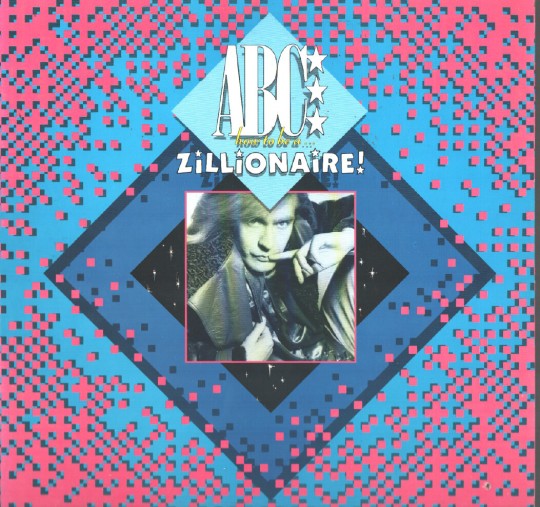
Money is a strange beast. One of my favorite pieces last year was When life changing money, isn’t by Wil Reynolds. He captured a great deal of what I’ve struggled with over the past few years.
I’m at a place where bills aren’t a problem and I can essentially do what I want to do. My daughter needs a new tennis racquet, I buy one. Should we go out for dinner tonight? Why not. Want to vacation on the beach in Maui? Book it!
The ability to do these things makes me very different from a majority of people and that scares me.
The thing is, I don’t need a whole lot more. I’m not looking to get a better house or a better car. I don’t have a need to buy crazy expensive clothing. Hell, I spend most of my days in sweats behind this computer.
More money isn’t inherently bad. I mean, I do live in one of the most expensive areas in the country and I am all about putting more towards retirement and college. But both of those are now on track so the extra money doesn’t actually do that much more.
More money hasn’t made me happier.
Time and Stress
The additional work created a lot more pressure. There’s less time and more expectations. That combination doesn’t translate into more happiness. Not at all.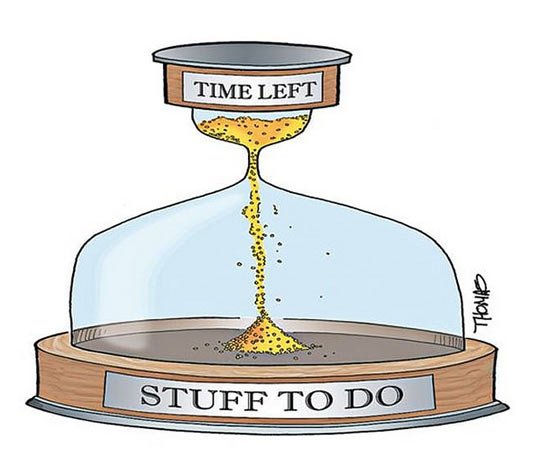
It might if I just wanted to coast on reputation and churn out whatever the minimum amount that was required to keep the money rolling in. But I’m not wired like that.
I’m not looking to mollify and appease, I’m looking to transform and build. Each client is different and requires research and due diligence to determine how to best tackle their search and business issues.
I feel the obligation of being a good partner and in delivering results. I don’t like cashing checks when a client’s business isn’t moving in the right direction.
Communication
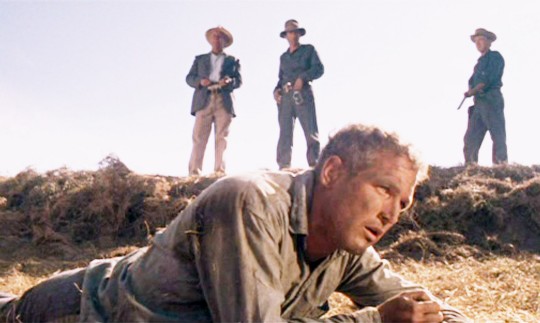
I find it hard to respond quickly to something I believe requires greater thought. That means I’m slow and frequently don’t communicate well. I’ve come to the conclusion that this is a feature and not a bug.
Can I get better at telling people when I’m taking more time than they want? Yes. But I know it won’t go away completely. I’ll often slip into a cycle of not responding and then putting off responding until I have something more material and when I don’t the guilt increases and the response then must be that much better so I delay … again.
I do this less now than I used to. But I know it’ll still happen from time to time and I’m tired of feeling bad about that. Some clients just aren’t a match for my work style. And that’s okay.
Referrals and Relief
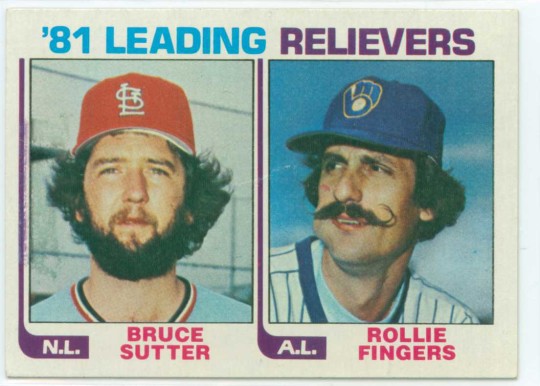
Much of what I describe above is why I continue to receive referrals. Good work gets noticed and in an industry rife with pretenders people happily promote those who truly get the work done.
I love referrals. But they also come loaded with additional stress. Because you don’t want to let the person referring you down. It’s not lost on me that they have enough confidence in me to trust them with one of their own connections.
What I’ve found in the last year is that more of these people understand the bind I’m in. I have only so much time and I’m not always the right person for a business. I specialize in large scale B2C sites like Pinterest and Genius. It’s not that I can’t do B2B. I just don’t enjoy it as much.
So they tell me up front that it might not be a match or they might even ask if further referrals are helping me or not. I tell you, it’s an incredible relief when referrals are put in this context.
I usually still take those calls though. I learned that just having a conversation with a referred lead is valuable. I don’t have to be the solution. I can help determine what they really need and can sometimes connect them with colleagues who I trust will do a good job on their behalf.
I become a link on a chain of expertise and trust. This is a highly valuable and scarce commodity.
Expert or Prima Donna

The crux for me was in understanding my value. Not only understanding it but believing in it. Do I deserve that lawyer-like hourly rate? I don’t do a lot of hourly work now but I find it a good way to help more folks without the overhead of stress.
Lawyers have a defined set of expertise that many others don’t. Hopefully they also have a track record of success. So how does that compare to my business? The law is relatively stable and transparent. But search is the opposite. It changes and it is not transparent in the slightest.
Of course two lawyers can interpret the law differently, just as two SEOs can interpret search differently. But more so today than ever, the lack of information in our industry – or pure disinformation – puts a premium on connecting with true experts.
It’s not just finding someone who can help you figure out your search issues. It’s preventing them from following bad advice and throwing good money after bad.
My default is to say that I’m lucky to be in a position where I have more business than I can handle. But it’s not really luck. I put in the time and I get the results. I work hard and am constantly looking to keep my edge. What is it that I’m not seeing?
I use this as context to explain why I’m not willing to relinquish my work style. And I’m trying to recognize that it doesn’t make me a prima donna. It simply acknowledges that I’m an expert in my field and that I want to be happy.
It’s uncomfortable to charge a high rate and dictate specific terms of engagement. It’s like the Van Halen rider where they demanded M&Ms but no brown ones. I guess you can do worse than being the search equivalent of David Lee Roth. Particularly if you know the history around that famous rider.
Letting Angst Go
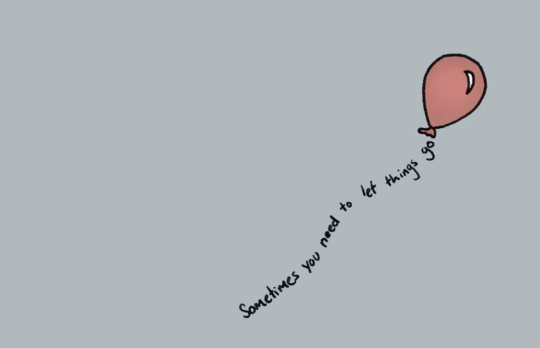
2017 was about embracing my value and believing in my expertise. It was about letting my own misgivings and angst go so that I can do the work I enjoy and be happy doing it.
Perhaps this sounds easy to some. But it hasn’t come easily for me. While I don’t gain validation from others, I don’t want to be one of those people who are out of touch and difficult to work with.
I absolutely dropped the ball on some leads and some clients in 2017. Never to the point where it hurt their business. But people were annoyed. I am truly sorry for that but … I no longer feel (overly) guilty about it.
I wanted to do the best work. I took on too much. I tried my best. I’ll wake up and try my best tomorrow.
I’ve learned to say no more often and not feel guilty about it or feel like it’s a missed opportunity. I’m not looking to build an agency and scale up. I’m a high-touch consultant with limited time constraints.
Raising Rates and Changing Retainers
Based on this I raised my rates. It’s the second time I’ve done that in the last three years. And I did it because one of my clients told me I should. It’s nice when clients are looking out for you as much as you are for them.
I also decided to remove the hourly maximum in my retainer agreements. In the past, I had a clause that essentially ensured that a client wouldn’t monopolize my time under a retainer agreement. I built in a hourly maximum just in case.
The problem was that by having that hourly maximum they were always thinking of the retainer in terms of the number of hours worked. That wasn’t what I was about. It isn’t about time. It’s about expertise and results.
This video on How To Price Design Services spoke to me so clearly.
I didn’t watch the entire video. I mean, who has 36 minutes! But that one segment was enough for me to know that it wasn’t the hours people should be paying for but the expertise.
This made a huge difference because I no longer have dreary conversations about whether I dedicated enough hours to support the retainer. I hate those conversations. They make me angry. So now I don’t have them.
Advisor Gigs

I also sought out more advisor positions in 2017. I didn’t quite nail down how to best structure these engagements. And I did a lousy job of juggling those relationships versus my traditional relationships.
But that’s how you figure this stuff out. You stub your toe and move on trying not to make those same mistakes again. 2018 already looks good on this front with a number of interesting relationships where I can leverage my expertise in search and marketing.
I built most of my long term client relationships on trust and adding business value beyond traditional search. And while I may take advising positions based on my primary expertise I’m looking for those that value my larger knowledge set and insight from scores of clients over the past ten years.
I’ve learned quite a bit about what makes one start-up succeed where others fail.
Continuous Education
Change is always a constant in search. And I’d say that the rate of change is increasing. I’m lucky to work with some incredible technical teams. So when they say something I don’t quite understand I don’t just nod along.
I ask them to explain it. I tell people when I don’t know something. I’ll tell people I know enough to know something is off but not enough to tell them exactly what’s wrong. This is how you build expertise and gain trust.
And in 2018 I’ve asked a few developers I trust to take an afternoon to talk to me like a five year old about JavaScript frameworks and how they deliver content to the page. Now, I understand the topic. But I want to learn more.
One of my assets has been to have enough technical knowledge to know when someone is blowing smoke up my nether regions. A lot of what I ask people to do (instrumentation) is boring. As such, many developers inflate the complexity of those tasks. Asking a few pointed questions quickly reduces that inflation and gets the work done.
I don’t feel like I have that level of confidence on JavaScript frameworks. I can tell half of the developers I work with have a similar level of knowledge to my own. And when a developer admits as much we can easily collaborate, debate difficult questions and figure things out. But many developers aren’t going to admit to ‘good enough’ knowledge.
Learning more is always a priority.
Outsourcing
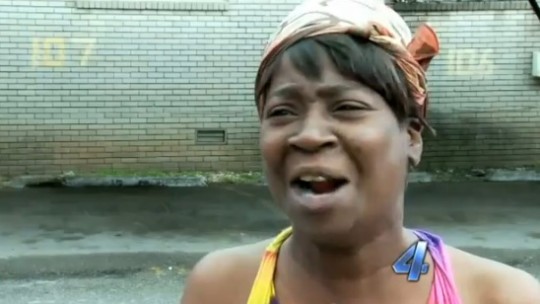
On the other hand, I can’t do everything. I sometimes want to but there’s simply not enough time in the day. This blog needs a makeover and I’ll have to get someone else to do it. I have to let my tinkering ways go so I can grow and focus on other projects.
And there are other projects in the works. In the past I’ve had ideas, purchased domains and thought about building one thing or another. Great ideas! But they never went anywhere. A constant flow of renewing domain email notices remind me of the missed opportunities.
The biggest obstacle in those projects was … me. I wanted to do it all. I wanted to build the actual site, which might require learning a new programming and database language. And then I’d need to actually write all the content and then do all the marketing and promotion.
Ain’t nobody got time for that.
Well, maybe some people do but I’m not one of them. Even though I could, and part of me thinks it would be fun if I did, I shouldn’t spend my time that way. So I’m working with folks to spin up two sites and one potential tool.
Risk and Danger
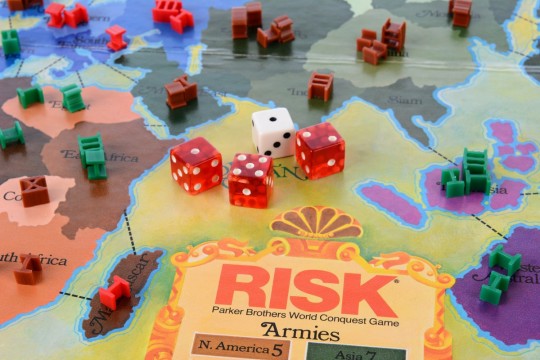
I expect that it will be difficult for me to let go of some details. I’m guessing the projects will be messy, confusing, aggravating and hopefully rewarding in one way or the other. But honestly, there are specific lyrics from Contrails by Astronautalis that remain my guiding star.
The real risk is not a slipped grip at the edge of the peak
The real danger is just to linger at the base of the thing
Every time I take a risk I am happy I did so. I can’t tell you that it always worked out. But in some ways … it did, with enough time and perspective.
In each failure, I can pick out how that helped get me to where I am today. I’m not saying things couldn’t have been easier. They could have. I just decide to find the positive out of those situations.
That’s not some saccharine ‘everything happens for a reason’ tripe. Screw that. I can just tell a story where the ending is … happy. I have cancer but it’s one that’s easily treatable. That’s a win in my book.
Telling myself those stories and deciding that I’d rather dwell on what turned out right instead of wrong helps me take the next risk. It’s my job to listen to that restless itch and move my story forward knowing I may need to do some editing in post production.
Observations

There were a lot of industry changes last year that had a meaningful impact on my business. I made a resolution to criticize less so I wavered in adding these observations because they’re not particularly rosy.
But the following things shaped my year from how I approach search analysis, to how I gain additional knowledge to how I educate clients.
The Google we knew is not the Google we’re dealing with today
I’ve been lucky to meet and talk with a number of Googlers throughout the years. They are overwhelmingly good people trying to do the right thing by users. The energy and passion they have around search is … inspiring.
But Matt Cutts left and Amit Singhal was replaced by John Giannandrea as the head of search. That doesn’t seem like a lot. But if you put your ear to the tracks and read the tea leaves you recognize that this was a massive change in direction for Google.
Machine learning is front and center and it’s an essential part of Google’s algorithm.
It’s not that good, passionate people aren’t still at Google. They are. But the environment is certainly different. We’re talking about people, experts in their field, given new direction from a new boss. How do you think you’d feel?
I believe understanding the people who work on search is an asset to understanding search. That’s more true today than ever.
Industry Content Is Lacking
I struggle to find good content to read these days. We lost our best investigative journalist last year along with another passionate and smart editor. Danny Sullivan and Matt McGee are sorely missed.
I used to take great pride in curating the industry and Tweeting out the best I could find each day. It was a steady stream of 2 or 3 Tweets a day. Now … it’s maybe twice a week. Maybe I’m just over-the-hill and not finding the new voices? Maybe I’m not dedicating enough time to combing Feedly?
But I’m discouraged when I open up a top trends of 2018 post (which I know is a mistake) and see ‘water is wet’ statements like ‘featured snippets will be important’ and ‘voice search is on the rise’.
Instead of bemoaning the bad, I would like to point out folks like Paul Shapiro for great technical content and Cyrus Shepard who seems to have taken up the mantle of curating our industry. There are other great specialists like Bill Slawski and Bartosz Goralweicz out there contributing but … there are too few of them for my taste.
And there are others who clearly have knowledge but aren’t sharing right now. I’m not going to call them out. Hell, I’d be calling myself out too. I think they’re all busy with work and life. Being industry famous doesn’t make their lives better. In fact, it causes more problems. I get it, but I wish we all had more time to move the conversation forward.
More data isn’t the problem, it’s the lack of interpretation and analysis.
The conversations I see happening in the industry are often masturbatory and ego driven. Someone has to be right and someone has to be wrong. Real debate and true exploration seem like an endangered species.
For instance, knowing that Google is relying heavily on machine learning, shouldn’t the industry be looking at analyzing algorithmic changes in a different way.
Today, changes in rank are often tied to an update in the mapping of vectors to intent that renders a different mix of content on results. One can watch over many months as they test, learn and adapt on query classes in pursuit of optimal time to long click metrics.
I find the calcification of search truth to be dangerous given the velocity of changes inherent in our vertical. At the same time, the newest things don’t replace the tried and true. It’s these contradictions that make our industry interesting!
Beyond that, many are working off of a very limited data set. The fact that something worked for you on the one site that you tried it on might not mean much. Of course, we’ve also seen people with much larger data sets make mistakes in interpretation.
And that’s where things seem to have gone off the tracks. I don’t mind correlation studies. They provide another point of data for me to consider among a large number of other data points. I assign the findings from each correlation study a weight based on all of my other knowledge.
That means that some will receive very little weight and others more based on my understanding of how they were conducted and what I see in practice across my client base. We don’t need less data, less content or fewer tactics. We need to better understand the value of each and how they combine to help achieve search success.
As a result I see far more appetite for hiring growth engineers over SEOs largely because they’re willing to test and adapt instead of proselytize.
The Things That Matter
I’m cancer free! It’s been nearly three years now. And in 2017 I couldn’t use recovery as an excuse for my eating habits. So I lost 25 pounds.
For those interested, there’s no real magic to losing weight. Journal your food and take in fewer calories than you burn. It’s not always fun or easy but it works.
I gained 10 of that back in the last few months of the year. This was partly because I lost my tennis partners, which meant no calorie burning exercise cushion that allowed me a few days of indulgence each week.
Thankfully, my daughter is now finally getting back to tennis after physical therapy for a patellar subluxation, which is a dislocation of the kneecap. Her second in two years.
It turns out her thigh bone doesn’t have as deep a divot for her kneecap. It’s nearly flat, which means she’s prone to dislocations. The orthopedist mentioned that this also meant that when it did slip out it wouldn’t hurt nearly as much. Seems I’m not the only one who can tell a story that relies on the positive versus the negative. #callback
My wife, on the other hand, has tennis elbow, which is far more painful than she or I realized. She’ll be undergoing a procedure soon in hopes that it helps her tendon to bounce back and heal fully.
Things are actually quite good despite all this and the fact that my daughter is a teenager (yikes) and my wife just had sinus surgery. I’m around and I’m happier, which I hope is as infectious as this year’s flu.
Postscript: Leave A Comment // Subscribe (RSS Feed)
The Next Post: Tracking Hidden Long-Tail Search Traffic
The Previous Post: Google Index Coverage Report